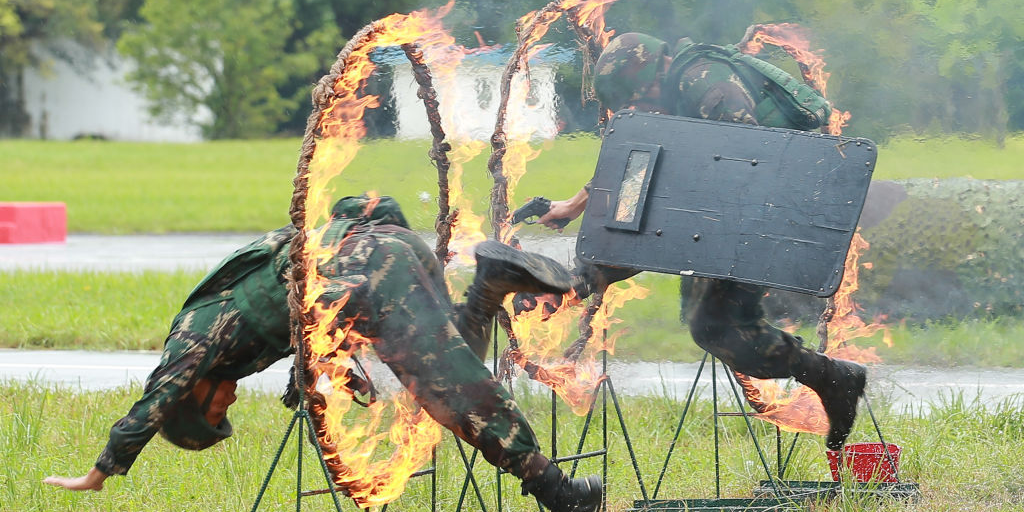- Pro-democracy protests in Hong Kong have entered their third month, with protesters shutting down Hong Kong International Airport on Monday.
- The Chinese government is threatening to send the People’s Liberation Army to the semiautonomous island to deal with the unrest.
- Bonnie Leung, the vice convenor of the Civil Human Rights Front in Hong Kong, told INSIDER that if the Chinese government makes good on the threat, they can expect a scene similar to the Tiananmen Square protests in 1989.
- “We have been memorizing June 4 for 30 years,” Leung said, referring to the protests. “It is in our blood.”
- Visit Business Insider’s home page for more stories.
Protests by residents of Hong Kong demanding expanded democratic reforms have entered their third month and drawn the ire of the Chinese government, which has issued threats of violence. But demonstrators aren’t ready to back down even if the Chinese military gets involved, one protest leader told INSIDER.
Bonnie Leung, the vice convenor of the Civil Human Rights Front, told INSIDER that she believes the Chinese People’s Liberation Army (PLA) is merely posturing to scare protesters by moving troops into Shenzhen, on the border with Hong Kong.
But if Beijing is serious about moving troops into Hong Kong to quash the pro-democracy protests, “I think you will see quite a lot of ’tankmen,'” Leung said, referring to the unknown man who blocked a line of tanks during pro-democracy protests at Tiananmen Square in 1989.
"I think it still creates some tension, but we try to laugh it off, " Leung said of the Chinese military threat, citing a Hong Kong protester Facebook group mocking the PLA's movements.

Adam Ni, a researcher on Chinese security and foreign policy at the Australian National University, previously told INSIDER that "Beijing is trying to deter escalating protests by signaling that it's determined to intervene with military force if necessary."
"But the complexity, as well as the risk of such an operation, is so high at this point that it's just not worth it to the leadership in Beijing," Ni said.
As the Hong Kong protests have persisted, they have gotten larger, and Hong Kong police tactics have gotten more extreme. Protesters say a woman's eye was severely injured after police shot a bean bag at her face, and Hong Kong police have admitted to dressing up as protesters, VICE reported. Activists shut down Hong Kong's airport earlier this week to protest police brutality.
Leung told INSIDER that the Chinese military doesn't have to "do the dirty work" itself.
"A lot of mobs and police force can do it for them," she said. "PLA just need to move around to get attention."

The PLA has waged a propaganda war on the mainland, widely sharing videos of the its Hong Kong garrison conducting anti-riot drills on Douyin, China's version of TikTok.
Beijing has also released a number of increasingly hostile statements regarding the Hong Kong protests, with official state media claiming that the protests are part of a CIA plot, NPR reports, and claiming "signs of terrorism" in the protests, according to the South China Morning Post.
Although Leung is skeptical of the PLA's threats, she noted that if the military does come to quash the Hong Kong protests, "if people have enough time to escape [Hong Kong], I think they will and they should."
But those who stay will not back down, she added.
"We have been memorizing June 4 for 30 years," Leung said, referring to the Tiananmen Square protests in 1989. "It is in our blood."

